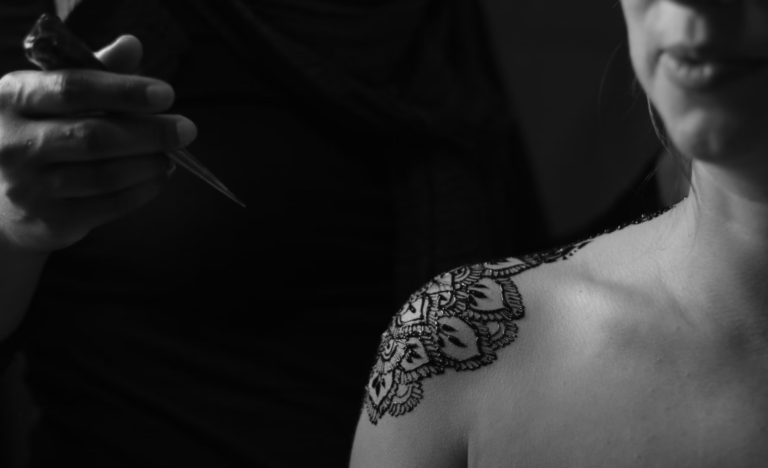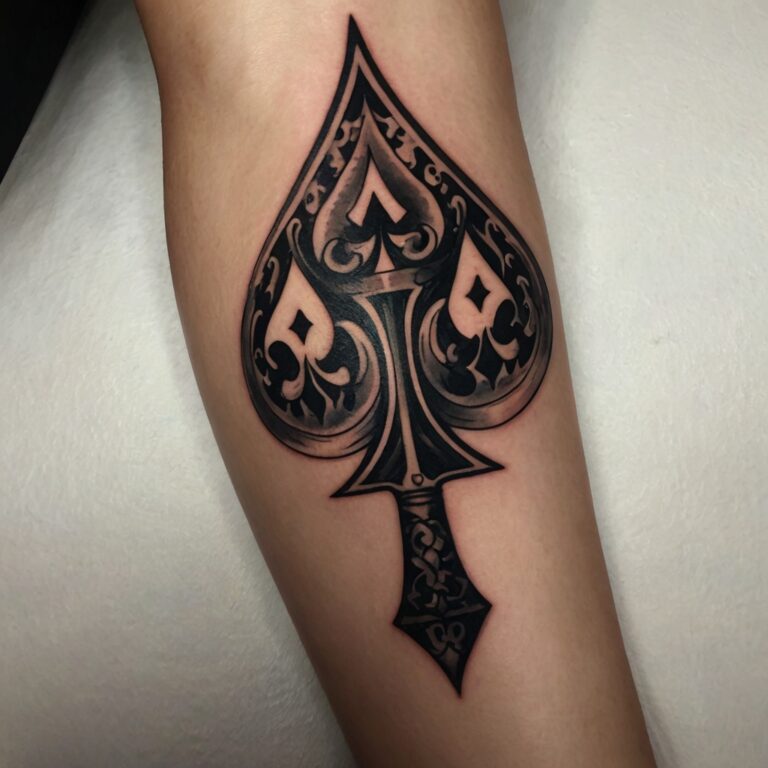I’ve always been passionate about giving back to the community, and blood donation has been one of my go-to methods. But, as someone who loves body art, I’ve often found myself in a pickle. Can I donate blood after getting a new tattoo? It’s a question many of us ink enthusiasts ponder.
The short answer is yes, but there are some important caveats to consider. Understanding the guidelines and waiting periods set by blood donation centers is crucial for ensuring both your safety and the safety of those receiving your blood. Let’s dive into what you need to know before rolling up your sleeve post-tattoo.
The Importance of Blood Donation
Every day, countless lives are saved through blood donations. It’s a simple act, yet its impact is profound and far-reaching. I’ve always believed that donating blood is one of the most powerful ways we can give back to our communities and help those in need. Whether it’s supporting someone undergoing surgery, a patient with chronic illness, or victims of accidents, blood donations are essential for saving lives.
One thing that often goes unnoticed is the constant need for blood. Many people assume that there’s always enough blood available when emergencies arise. However, the reality is quite different. Blood banks regularly face shortages, and the demand for various blood types can fluctuate dramatically. For instance, during natural disasters or mass casualties, the need for blood donations can skyrocket overnight.
Moreover, blood has a limited shelf life, which means regular donations are crucial to ensure a steady supply. Here are some key facts about blood shelf life and the demand for donations:
| Blood Component | Shelf Life |
|---|---|
| Red Blood Cells | 42 days |
| Platelets | 5 days |
| Plasma | 1 year (frozen) |
Given these limitations, it’s clear that sustaining a healthy blood supply is a continuous effort that requires the participation of as many eligible donors as possible. This is why I’m passionate about encouraging others to donate blood, especially after getting a tattoo, as long as they adhere to the safety guidelines and waiting periods set by blood donation centers.
Eligibility to donate blood post-tattoo hinges on the safety protocols followed by the establishment where you got your tattoo. If it’s a state-regulated facility using sterile needles and ink that hasn’t been reused, the waiting period can be as short as a few months. This ensures that potential donors are not prematurely excluded from participating in this life-saving process due to recent tattoos.
Becoming a regular blood donor is a commitment to health, community, and compassion. It’s a statement that you recognize the importance of these donations and are willing to contribute to a cause greater than yourself.
The Impact of Tattoos on Blood Donation
When I first considered donating blood after getting a tattoo, I was met with a mixture of information and myths about the impact tattoos can have on blood donation eligibility. It’s crucial to separate fact from fiction to understand how tattoos really affect our ability to donate.
Firstly, tattoos don’t permanently bar you from donating blood. However, they can introduce a temporary waiting period before you can safely donate. This is primarily due to the slight risk of infection that tattoos can pose in the period immediately following their application. The waiting period varies but is often around three months, provided the tattoo was applied in a state-regulated facility that uses sterile needles and ink which hasn’t been reused.
Regulations also differ significantly from one place to another. In some regions, the rules might be stricter depending on local health codes or the prevalence of certain infectious diseases. The key here is to check with your local blood donation center or their website for the most current guidelines.
Another point to consider is the number of tattoos you have and their locations. Although having multiple tattoos doesn’t necessarily change the waiting period, it might prompt a more thorough screening process. The location of your tattoo could also impact the blood donation process, especially if it’s in an area where the blood will be drawn. In that case, the phlebotomist needs to assess the tattoo’s healing and condition before proceeding.
Despite these considerations, there’s good news for tattoo lovers who want to give back through blood donation. Improved standards in tattoo parlors, especially regarding sterilization and safety, have made it easier for inked individuals to donate blood without long delays. By ensuring your tattoo is done at a reputable establishment, you’re not only caring for your health but also keeping the door open to help others through blood donation.
As blood banks face regular shortages and with blood having a limited shelf life, every donation counts. I’ve learned that being proactive about understanding these guidelines means I can support my community by donating blood more regularly. It’s a way of giving back that blends my personal expression with communal care.
Guidelines for Blood Donation after Getting a Tattoo
When I decided to get a tattoo, I was concerned about how it might affect my ability to donate blood. After doing some research, I discovered that there are specific guidelines to follow if you’ve recently been inked. Knowing these guidelines not only sets my mind at ease but also ensures I can continue contributing to this vital cause without unnecessary delays.
First and foremost, the waiting period is the most critical factor to consider. If the tattoo was applied in a state-regulated facility that uses sterile needles and ink that has not been reused, the standard waiting period is usually about three months. This timeframe ensures that any potential infections from the tattooing process have enough time to manifest, keeping the blood supply safe.
It’s also essential to understand that the guidelines can vary based on location. Different countries and even states within the U.S. have distinct regulations regarding blood donation post-tattoo. For instance, some places might have shorter or longer waiting periods depending on their assessment of risk. Because of this, I always recommend checking with your local blood donation center to get the most accurate and current information.
Furthermore, when you go to donate, be prepared for a thorough screening process. They might ask detailed questions about your tattoo, such as when and where you got it, and whether it was done in a licensed facility. They may also examine the tattoo to ensure it’s healed properly and doesn’t show signs of infection.
Arming myself with this knowledge, I felt more prepared and less anxious about the process. Plus, it’s incredibly fulfilling to know that a little bit of preparation can go a long way in ensuring my contributions help those in need, without compromising safety.
The Waiting Period after Getting a Tattoo
After getting a tattoo, the waiting period before you can donate blood is a crucial consideration. This period typically ranges around three months and serves as a safeguard against the transmission of infections that can be present in ink or through the use of non-sterile needles. However, it’s important to understand that this is a general guideline and variations may exist depending on where you live.
In many areas, the waiting period is strictly enforced to ensure that any potential infections, such as hepatitis, have had ample time to manifest. This precaution is paramount as certain infections may not immediately present symptoms, making it challenging to detect them through initial screenings.
To give you a clearer picture, let’s delve into why this waiting period is so pivotal. When a needle penetrates your skin during the tattooing process, it opens a door for bacteria and viruses to enter your bloodstream. Even with the most stringent safety measures, there’s always a small risk of infection. By adhering to a waiting period, blood donation centers can significantly reduce the risk of contaminated blood entering the donor pool.
Here are the key points regarding the waiting period:
- It’s typically three months long.
- This period allows potential infections to become detectable.
- It helps protect the recipient of the blood from receiving contaminated blood.
- Regulations may vary by location, so it’s crucial to confirm with your local blood donation center.
Remember, the goal of the waiting period is not to penalize those who choose to get tattoos but to ensure the safety and integrity of the blood supply. While waiting to donate blood might seem like a drawback, it actually underscores the importance of taking comprehensive measures to protect both donors and recipients alike.
Ensuring Safety and Compatibility
When it comes to blood donation after getting a tattoo, safety and compatibility are paramount. I’ve learned that the mandatory waiting period isn’t just a precaution; it’s a critical measure to ensure that every pint of blood donated is safe for the recipient. During this time, potential risks such as infections or diseases that could be transmitted through tattooing are closely monitored. It’s fascinating to realize that the body needs this grace period to clearly indicate any possible complications that could affect the quality of the blood.
The assessment doesn’t stop at the waiting period, though. Blood donation centers take extra steps to ensure the compatibility of donated blood with potential recipients. Blood screening and testing are rigorous processes designed to detect any infectious agents that could pose a risk. This includes, but is not limited to, testing for HIV, hepatitis B, and hepatitis C. It’s reassuring to know that the blood that makes it through these tests is thoroughly vetted for safety and compatibility.
Moreover, the type and location of the tattoo can influence the screening process. For example, tattoos in certain areas that are harder to inspect might require additional scrutiny. This thorough screening process showcases the dedication to maintaining the integrity of the blood supply.
I’ve also come to understand the importance of honest communication between the donor and the blood donation center. Transparency about the timeline and conditions of the tattooing process can aid significantly in ensuring that donated blood is safe and compatible. Blood donation centers often provide clear guidelines on what constitutes a state-regulated facility, underlining the importance of getting tattoos in environments that uphold high standards of hygiene and safety.
Blood safety isn’t just a concern for the donors and recipients; it’s a societal responsibility. Through following these guidelines and undergoing rigorous testing, donors can contribute to a safer, more reliable blood supply. It’s a powerful reminder of how individual choices can have a broad impact on public health.
Conclusion
Getting a tattoo doesn’t mean you can’t contribute to saving lives through blood donation. It’s all about timing and transparency. By waiting the recommended three months and ensuring your tattoo was done in a regulated facility, you’re taking necessary steps to maintain the blood supply’s safety. Remember, the rules are there for a reason—to protect both you and the recipients of your generous donation. So, before you roll up your sleeve to give blood, make sure you’ve checked the latest guidelines with your local donation center. It’s a simple act that speaks volumes about your commitment to helping others, all while sporting your unique ink. Let’s keep the blood supply safe and plentiful, one tattooed donor at a time.







